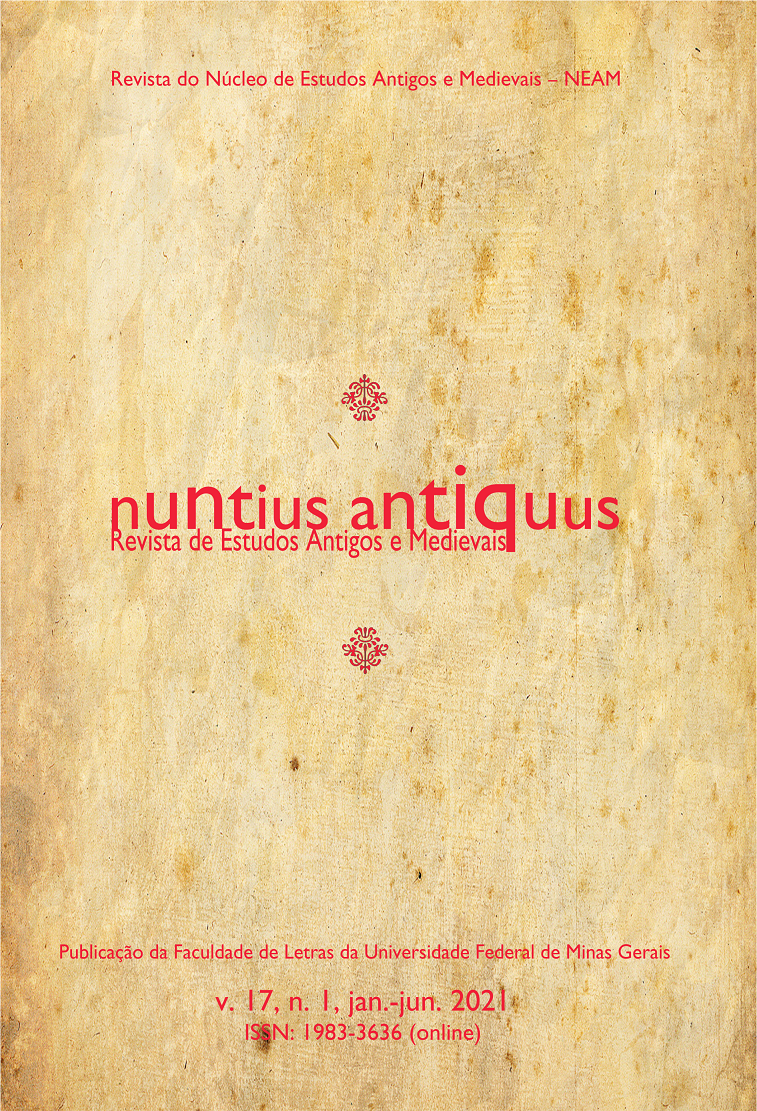The New Philosophy of Nature by Francis Bacon as Appropriation and Reframing of the Aristotelian Physics
Keywords:
philosophy of nature , philosophy of science , Aristoteles , Francis BaconAbstract
The aim of this article is to investigate the influence of the aristotelism in the new philosophy of nature from the English thinker and scientist Francis Bacon, having as background the piece of work Novum Organum Published in 1620. At some points of this specific piece of work, Francis Bacon intends to do na appropriation and give a new meaning to relevant concepts of the aristotelism itself. Such as form and nature. Appropriation ; since the paradigm of form and nature, while principle of the beings, is revisited by Francis Bacon and consists of important pillars of the Novum Organum. By new meaning, since Francis Bacon was a strong critic of the aristotelism as a method of getting to know nature, this philosopher produced new ways of applying the concepts of the aristotelism in the scientific context of modernity. In general, one of the most important ideas of this piece of work is to present questions and criticism to the central aspects of Aristoteles’ philosophy. As well as the mainly formal processes of knowledge, that offer a little or no resource to discoveries and inventions in the field of natural Sciences. Although beyond critic, the Idea of this article will be to outline the influence of Aristoteles in the Novum Organum. Despite Bacon’s refusal to the aristotelism as a method aknowledging nature.
Downloads
References
ARISTÓTELES. Física. Introdução, tradução e notas de Guillermo R. de Echandía. Madrid: Editorial Gredos, 1995.
ARISTÓTELES. Metafísica: volume II. Ensaio introdutório, texto grego com tradução e comentário de Giovanni Reale. Tradução de Marcelo Perine. São Paulo: Edições Loyola, 2015.
BACON, Francis. Novum Organum ou Verdadeiras indicações acerca da interpretação da natureza/Nova Atlântida. Tradução e notas de José Aluysio Reis de Andrade. São Paulo: Abril Cultural, 1979.
ÉVORA, Fátima Regina R. Natureza e Movimento: um estudo da física e da cosmologia aristotélicas. Cadernos de História e Filosofia da Ciência, Campinas, Série 3, v. 15, n. 1, p. 127-170, jan.-jun. 2005.
PANTELIA, Maria. Thesaurus Linguae Grecqae. Irvine: University of California, 2014. Disponível em: http://stephanus.tlg.uci.edu/. Acesso em: 8 abr. 2021.
REYNÉS, Jesús Hernández. Lo natural y lo artificial en Aristóteles y Francis Bacon: Bases para la tecnología moderna. Ontology Studies, Barcelona, n. 9, 2009, p. 289-308.
ROSSI, Paolo. Francis Bacon: da magia à ciência. Tradução de Aurora Fornoni Bernadini. Londrina: Eduel; Curitiba: Editora da UFPR, 2006.
YSSELMUIDEN, G. L’inducion baconienne. Revue Néo-Scolastique, [S.l.], 13º année, n. 49, p. 18-31, 1906. DOI: https://doi.org/10.3406/phlou.1906.1920.
ZATERKA, Luciana. As teorias da matéria de Francis Bacon e Robert Boyle: forma, textura e atividade. Scientiae Studia, São Paulo, v. 10, n. 4, p. 681-709, 2012. DOI: https://doi.org/10.1590/S1678-31662012000400004.





